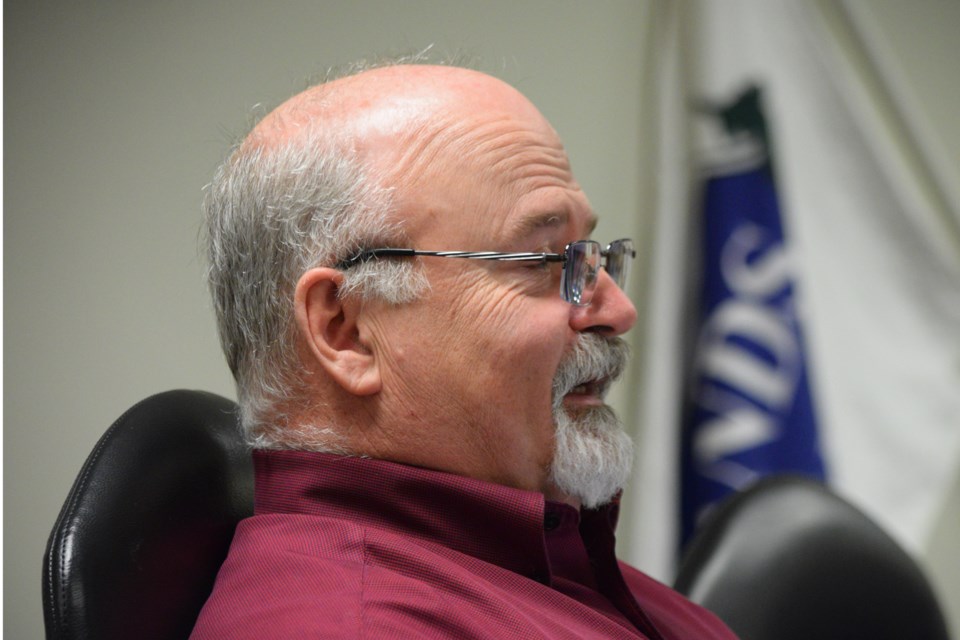WOODLANDS COUNTY - Woodlands County councillors want to know how much residents might be willing to pay in terms of a local improvement tax for improvements in regional infrastructure improvements or if they were even in favour of such improvements.
More specifically, councillors want to know if residents are willing to pay a local improvement tax, and if so, how much of a tax for cold-mix road improvements or even if they favour such enhancements.
On Jan. 31, councillors accepted the presentation on cold-mix for information and scheduled public information sessions to be held in conjunction with 2024 budget open houses in Whitecourt and Fort Assiniboine in late February.
Cold mix is a form of asphalt that is easier and more cost-effective to apply than its hot mix counterparts.
Infrastructure director Andre Bachand stated that the lifespan for cold-mix roads is about seven years.
The council instructed the administration to prepare a request for decision (RFD) before the new year to review options for a local improvement tax for the municipality's cold-mix road improvement program.
"We've identified that [under Alberta's Municipal Government Act] local improvements can be initiated in two ways," Bachand said. "The first is by a petition by the property owners impacted [by a cold-mix road project], the other is that council initiates the local improvement tax."
He added a local improvement tax can be based on one of four criteria: assessment, each parcel of land impacted, amount of road frontage, or unit of area.
Bachand said that to initiate the process, a municipality must first create a local improvement plan and notify all affected properties.
He added that impacted property owners have 30 days to petition against the improvement. If the municipality does not receive a petition within the deadline, council may undertake the local improvement and impose a local improvement tax within three years.
Bachand said the entire process of approving a local improvement is roughly two and a half months.
Whitecourt Central Coun. Alan Deane emphasized it is important for residents to note the municipality is only collecting information and not something council has committed to.
Bachand said administration will also attempt to notify residents living on cold-mix roads or those potentially impacted by such improvements in writing about the public information sessions.
This is in addition to the county's traditional advertising via local newspapers and the municipality's social media and online channels.
Deane said the dates might be too soon, adding he believed it might be too ambitious to expect staff to be able to contact the residents, noting that the municipality would need to use conventional "snail mail" solely because they only have the phone numbers or e-mail addresses of a relatively small number of residents.
Whitecourt East Coun. Jeremy Wilhelm agreed, adding he believed many residents in his division would be interested in attending, but said the meetings gave them a good starting point. They could always schedule additional sessions if needed.
The 2024 Woodlands County budget open houses are from 4 to 7 p.m. For Whitecourt, the open house is on Feb. 26 and in Fort Assiniboine, it is on Feb. 27 at the Royal Canadian Legion.



